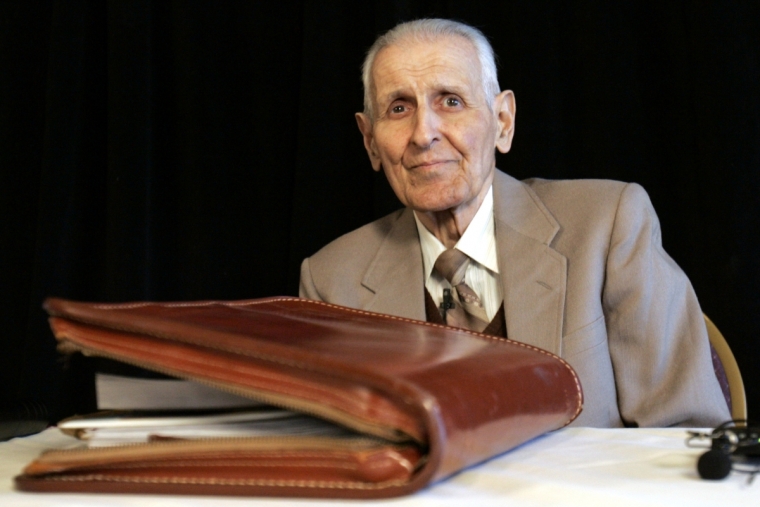Dr. Death would be proud: New York considers physician-assisted suicide law

ALBANY, New York (Christian Examiner) – A Republican senator in New York State has introduced a physician-assisted suicide bill, a news website that follows legislation at the statehouse in Albany has reported.
Capital New York reported the bill's introduction by Sen. John Bonacic [R-Middletown] last week, a highly unusual move for a GOP senator in a GOP controlled legislature. With less than one week now remaining in the state's legislative session, however, it seems unlikely the bill will even be considered by lawmakers.
Bonacic told Capital New York he introduced the legislation after hearing from families affected by terminal diagnoses and "to start a statewide discussion about the aid-in-dying issue."
"I recognize that not everyone agrees with the decision to end one's own suffering, but I believe it is right to give people the opportunity to make their own personal decisions, particularly when it comes to their health and end-of-life care," Bonacic said.
Another lawmaker, Amy Paulin [D-Westchester], is sponsoring a bill with the same text in the Assembly. Her bill has multiple co-sponsors. At least three other bills were also introduced in the Assembly in February to allow terminally patients to end their lives, but those bills also have stalled. Each of the bills received significant opposition from the New York State Catholic Conference.
The question of physician-assisted suicide involves weighty issues—the balance between personal autonomy and the State's interest in the protection of vulnerable individuals against potential abuse, the historical and regulated role of the physician, and the value of human life.
Under the terms of the legislation supported by Bonacic, a physician with a "bona fide physician-patient relationship" would be able to prescribe a lethal dose of medication to a patient expected to die within six months, with or without further medical care. The lethal dose of medication would have to be self-administered by the patient. The bill also provides immunity from prosecution for health care workers involved in providing the lethal drugs to the patient.
Two organizations favoring physician-assisted suicide in New York, Compassion & Choices and End of Life Choices New York, are behind the push to add New York to the list of states now allowing the practice.
End of Life Choices New York in February also filed a lawsuit in the state on behalf of several terminally ill patients and health care workers who want to see the state adopt laws allowing for the use of physician-assisted suicide. New York's Attorney General Eric Schneiderman has filed a motion to dismiss the case.
Schneiderman said the Supreme Court had already ruled that New York's law against suicide was constitutional and added, "If Plaintiffs seek to legalize physician-assisted suicide, they must turn to the State Legislature."
"The question of physician-assisted suicide involves weighty issues—the balance between personal autonomy and the State's interest in the protection of vulnerable individuals against potential abuse, the historical and regulated role of the physician, and the value of human life," the attorney general wrote in the motion to dismiss Myers, et al v. Schneiderman.
"These are precisely the types of public policy questions that a legislature is designed to deliberate and address. Plaintiffs, by filing this action, attempt to bypass a fundamental component of the democratic process. Their Complaint must be dismissed," Schneiderman wrote.
The court has yet to rule on the motion to dismiss the lawsuit.
Physician-assisted suicide was catapulted to the forefront of the debate over end-of-life issues when 29-year-old, terminally-ill California native Brittany Maynard moved to Oregon, which has a physician-assisted suicide law, to end her life. Maynard campaigned for "right to die" legislation in multiple states before she took her own life seven months ago.
Oregon, Vermont and Washington have passed laws allowing physician-assisted suicide, and a Montana court recently ruled the practice was permissible. Physician-assisted suicide is also legal in a single county in New Mexico.
On June 4, a bill allowing terminally ill patients to take their own lives with the assistance of a doctor passed the California Senate after the California Medical Association (CMA) withdrew its three-decades-long opposition to the bill two days before.
"The decision to participate in the End of Life Option Act is a very personal one between a doctor and their patient, which is why CMA has removed policy that outright objects to physicians aiding terminally ill patients in end of life options," CMA President Luther Cobb, said in a statement. "We believe it is up to the individual physician and their patient to decide voluntarily whether the End of Life Option Act is something in which they want to engage."
California's End of Life Option Act (SB 128) now heads to the Assembly for a vote. The deadline to pass the bill is Sept. 11.
RELATED ARTICLES:
Rick Warren & Joni Eareckson Tada weigh in on California's newest assisted suicide bill
Kara Tippetts, a gentle voice against assisted suicide, dies
California physicians first in nation to cave on physician-assisted suicide